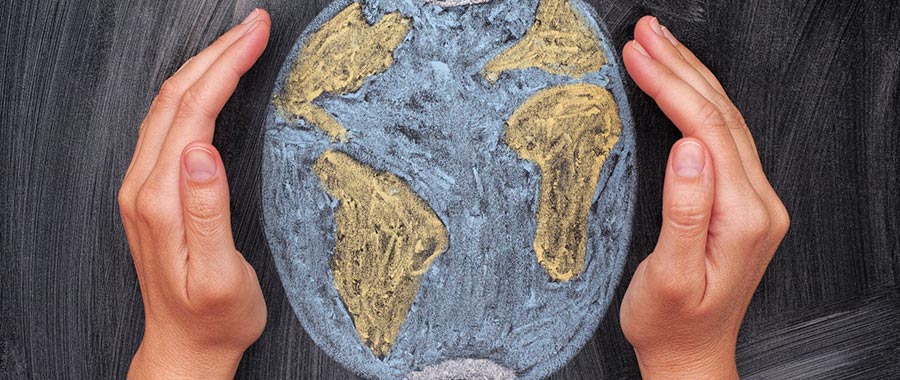In an era characterized by incessant individualism, the Bahá’í Faith emerges as a beacon of collective responsibility, advocating for the ethos of service to humanity. The principle underlying this philosophy—the aspiration to become a servant of humanity—represents not only a moral imperative but also an existential journey toward attaining a substantive life imbued with purpose. This exploration endeavors to elucidate the concept of becoming a servant of humanity as articulated through Bahá’í teachings, shedding light on its essential nature, its implications for personal growth, and the broader societal transformation it entails.
To engage with Bahá’í teachings is to confront the intricacies of human existence. The concept of service transcends mere altruism; it invites individuals to cultivate a profound inner transformation. As one endeavors to grasp the multifaceted dimensions of service, it becomes apparent that this journey begins with self-examination. The dichotomy between self-interest and altruism reveals itself as a pervasive theme in contemporary discourse yet often eludes meaningful resolution. The Bahá’í perspective posits that true fulfillment arises not from the self-serving pursuits prevalent in modern society but through dedicating oneself to the upliftment of others.
Essentially, the path of becoming a servant of humanity begins with an intentional commitment to selflessness. This commitment manifests in myriad forms, from volunteerism and community engagement to fostering personal relationships grounded in empathy and understanding. In shaping one’s character through acts of service, individuals experience an awakening of conscience, uncovering the latent potential for compassion and kindness within. The transformative power of service nurtures an ethos wherein personal aspirations align harmoniously with the collective needs of society.
This ideology compels individuals to reconsider their roles within the broader tapestry of humanity. One’s identity is invariably interwoven with that of others; thus, the elevation of the self is inextricably linked to the well-being of the community. The Bahá’í teachings articulate that the progress of society rests upon the unassailable foundation of mutual support and cooperation. Therefore, by embracing the mantle of servitude, individuals contribute to a collective endeavor aimed at the betterment of all. This fosters a symbiotic relationship wherein the act of serving becomes a conduit for personal development, and the enhancement of community enriches the lives of all individuals involved.
Critically, the notion of becoming a servant of humanity also invites contemplation upon the nature of purpose itself. In a world where existential voids are often filled with ephemeral pursuits, the Bahá’í approach to life emphasizes the significance of higher purpose. A life devoid of purposeful engagement risks stagnation, while one dedicated to service ignites the spirit and propels individuals toward greater heights of achievement. The pursuit of a meaningful existence, as delineated in Bahá’í thought, necessitates an unwavering commitment to serving others, thus creating a ripple effect that resonates through generations.
Furthermore, this service-oriented life aligns seamlessly with the overarching goal of global unity—a precept most deftly encapsulated within the Bahá’í vision. The challenges besieging humanity—war, poverty, inequality—demand solutions steeped in collaborative action and dialogue. By positioning the self as a servant of humanity, individuals forge pathways toward understanding and reconciliation, transcending barriers of creed, nationality, and culture. The ultimate vision of a unified global society is not a distant utopia relegated to the realm of idealism; rather, it is an achievable reality rooted in the steadfast commitment of each individual to contribute to the collective good.
The idea that individuals can be agents of change in their communities and the world at large provides a compelling motivation. The Bahá’í teachings advocate for education as a potent tool in this regard. Through the empowerment of knowledge, individuals are encouraged to enlighten themselves and those around them, thereby fostering a culture of learning that underpins social progress. Education—as a means of service—extends beyond merely academic enrichment; it entails the cultivation of moral virtues, critical thinking, and the capacity for empathy. Through such educational endeavors, people are not only equipped with skills to navigate life’s challenges but are also instilled with a sense of responsibility toward others and the world they inhabit.
Moreover, the act of service embodies a quintessential humility. In an age where accolades and recognition often overshadow genuine kindness, the Bahá’í teachings ground individuals in the simplicity of offering oneself in the service of others. This humility acts as both a counterbalance to egotism and as a nurturing force for authentic connection. When one embraces the philosophy of service, every interaction becomes imbued with significance, and the mundane is transformed into the extraordinary through acts of kindness and compassion.
In conclusion, to become a servant of humanity is to embark upon a profound odyssey toward a life of earnestness and authentic purpose. The Bahá’í teachings offer a robust framework for understanding this journey, illuminating the path toward personal transformation and societal betterment. Through a steadfast commitment to service, individuals not only find fulfillment but also contribute to the collective elevation of humanity. Amidst the trials and tribulations of the modern world, the timeless call to serve remains an accessible and noble pursuit—one that promises the possibility of profound change within oneself and within the world at large.
